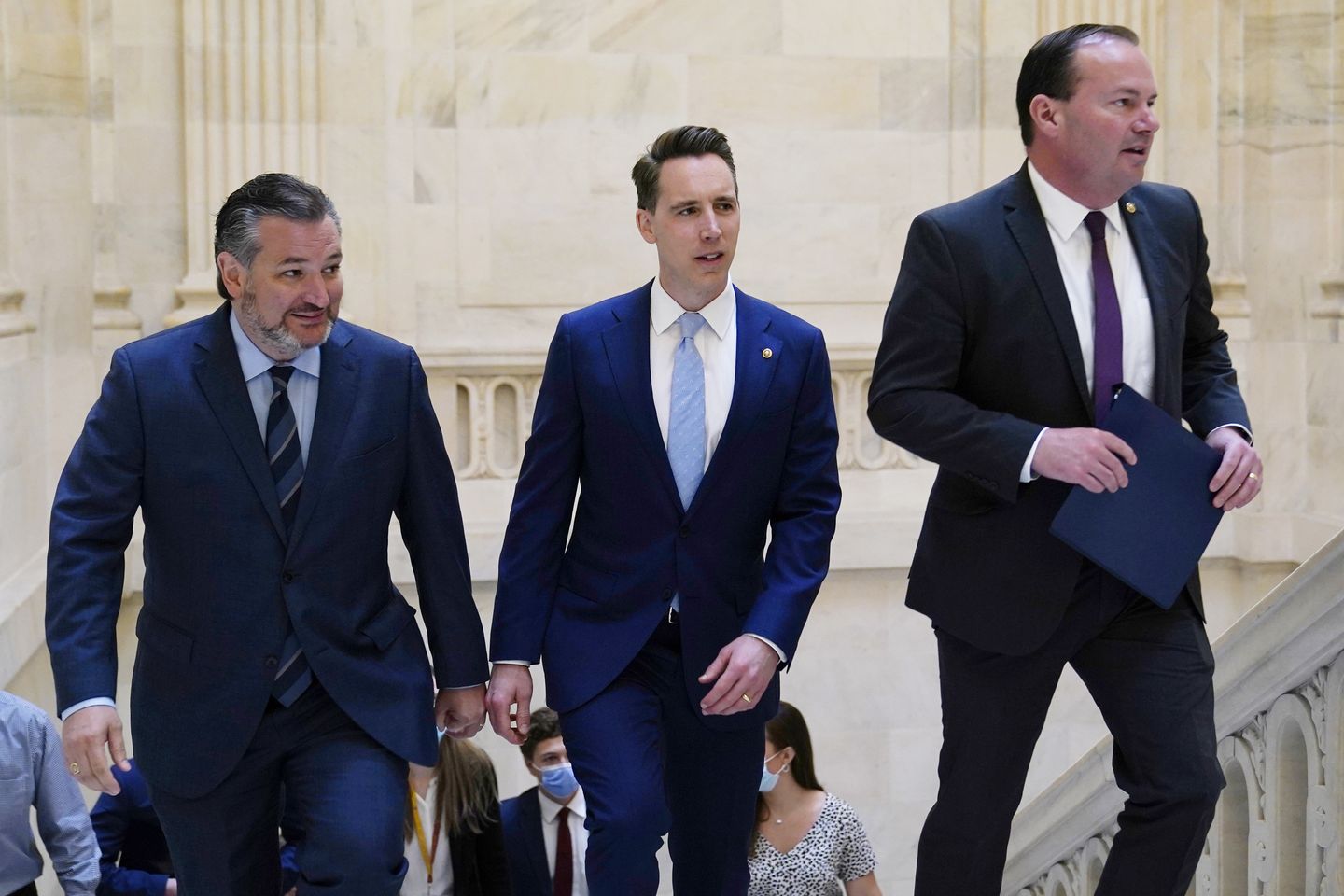Republicans bring heat with bills to plunk MLB over ‘spineless’ All-Star Game move
If Major League Baseball wants to yank the rug out from under Atlanta, then the league should pay, as far as House and Senate Republicans are concerned. Republicans introduced bills last week to eliminate MLB’s antitrust exemption and allow localities to seek damages from the league over the relocation or cancellation of the All-Star Game. Rep. Buddy Carter, Georgia Republican, called MLB commissioner Rob Manfred’s decision to move the July 13 Midsummer Classic to Denver in a show of opposition to the hotly contested Georgia election law “a spineless decision based on lies.”

SEE ALSO: Ex-MLB head Fay Vincent: Commissioner made ‘serious mistake’ by moving All-Star Game
“What this would do is to allow the local communities to recoup some of the costs that have been lost by hardworking Georgians and small businesses that have suffered the consequences of this,” said Mr. Carter. He sponsored the Community Protection in Sports Act on Fox News.
The measure “would make it unlawful for MLB to cancel or relocate a team competition event that is not a part of the regular season unless it is because of a pandemic, a natural disaster, inclement weather, or disaster declared by the federal or state government,” said his office in a statement.
House and Senate Republicans also introduced legislation to eliminate MLB’s antitrust exemption, saying the league had abused its special treatment by capitulating political pressure on the left.
The league has been able to escape scrutiny in part thanks to its perception as a good-faith guardian of America’s national pastime,” said Sen. Marco Rubio, Florida Republican. “But with its reprehensible decision to play politics and punish the State of Georgia – and countless small
and minority-owned Georgian businesses – by moving the All-Star Game out of Atlanta, the MLB has shown its willingness to use its market power, derived from its antitrust exemption, irresponsibly. In addition to Mr. Rubio, Republican Sens. Marsha Blackburn, Ted Cruz, Josh Hawley, and Mike Lee introduced the Senate antitrust bill. At the same time, more than 20 House Republicans signed onto the companion legislation.
The Georgia election bill signed last month drew a flood from Democrats who called it a voter-suppression measure and “Jim Crow 2.0.” At the same time, Republicans argued that the bill imposed reasonable safeguards, requiring identification for absentee ballots and reducing the number of drop boxes from pandemic levels while expanding early voting days. Foes said moving the All-Star Game actually hurt minority communities, given that nearly 30% of Atlanta businesses are Black-owned, while Denver is 76% White and 9% Black.
“You have nine times as many Black-owned businesses in Atlanta as in Denver,” said Alfredo Ortiz, the Job Creators Network president. “You have, I think, ten times as many employees employed in these Black-owned businesses in Atlanta versus Denver.”
Mr. Cruz said that MLB asks fans to produce ID when they pick up tickets at the will-call desk, “but they have made it clear they oppose photo ID requirements to vote. Suppose Major League Baseball will act dishonestly and spread lies about Georgia’s voting rights bill to favor one party against the other. In that case, they shouldn’t expect to continue to receive special benefits from Congress,” Mr. Cruz said.
The Washington Times has reached out to MLB for comment.
More than 100 companies, including Nordstrom, Starbucks, and Target, signed a Black Economic Alliance letter published Wednesday saying they oppose “any discriminatory legislation or measures that restrict or prevent any eligible voter from having an equal and fair opportunity to cast a ballot.”
The MLB was not among the signers.
Proposals to end MLB’s antitrust status have been floated before. In 2001, House and Senate Democrats sought to eliminate the exemption, which is unique in professional sports, after team owners voted to shut down two teams, an effort that ultimately failed.
Mr. Lee said that the MLB “has used its judicially fabricated antitrust immunity to suppress wages and divide up markets for decades—conduct that is plainly illegal, and sometimes criminal, in any other industry.”
“We should have done this decades ago, but when billion-dollar businesses start engaging in political extortion, it becomes even more pressing to end their special treatment,” he said.




